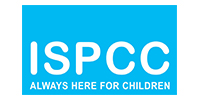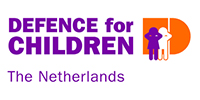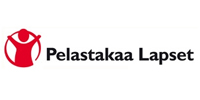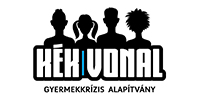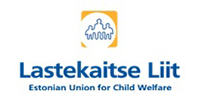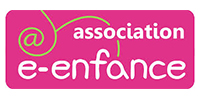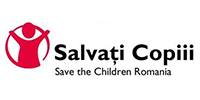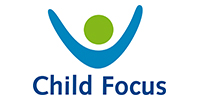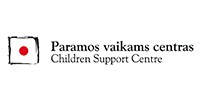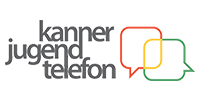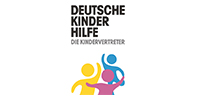eNACSO IV 2nd MEMBERS MEETING Athens, March 17-18, 2016
May 26, 2016The six-monthly event is as usual an occasion to meet in person all Members and to give a more detailed update of the progress made in the last period of time. It’s also an opportunity to share ideas and confront on more outstanding topics as well as raising awareness on emerging issues and concerns that, with the support of experts, will be widely explored.
This year the Meeting revolved around four main subjects:
- SUSTAINABILITY;
- SEXUALIZATION;
- GENERAL DATA PROTECTION REGULATION.
Sustainability of eNACSO”: What’s been done so far and what perspectives for the future
Given the crucial phase of eNACSO due to the imminent end of the EU funding, and after considering the efforts made by the Coordinator mainly in conjunction with the Board to hold up the Network, the time has come to make a general reflection on possible scenarios that might occur in the coming months.
For this reason the first day was entirely dedicated to the sustainability of eNACSO. The panel aimed at sharing with members conclusions and proposal previously discussed and agreed within more restricted groups (Board, Secretariat, Sustainability Group) on the “future of eNACSO” beyond the current EU-funded period (August 2016).
The scope of the work session had the following objectives:
- Receiving members’ feedback on the the different measures that have been taken during the past months, the tracks we’ve pursued as well as the results of these actions.
- Agreeing upon eNACSO’s future role and structure: the membership model was considered, and the attendees discussed on what kind of membership organisations the network needs, and what members can better contribute to eNACSO’s core business,i.e. policy development and advocacy to ensure children’s rights in the online environment;
- Discussing with members future viable scenarios in relation to the way of funding.
Sex Education
After the Report drafted by Sonia Livingstone of the LSE investigating on Young people, sexual rights and the internet, the Network met to further develop a framework for an advocacy strategy that takes into account the findings resulting from the research , compatible with the concerns arisen and having identified by the working group as such. As a matter of routine eNACSO has set up a cycle of Focus Groups to be implemented in different Member States of the Space ensuring a significant geographical coverage with the sample represented. The Child’s participation will allow to focus on more specific areas of major concern, which have not been addressed and resolved and that must be tackled from EU as a whole.
The second day was dedicated to a critical reading of the Sex Education Systems across Europe and to the proposals on how to overcome the EU gap in Europe.
The aim of this session was collect further information to guide and strengthen our policy and advocacy strategy on Children Sexual Rights, on both national and European level.
Sexuality Education is part of this strategy, and eNACSO wanted to have a better understanding and evidence on what Sexuality Education means across Europe and why it is so important today.
With the support of two expert, Ms Welling, Professor of Sexual and Reproductive Health at the London School of Hygiene & Tropical Medicine and Ms Loeber from European Society for Contraception Nijmwegen, Netherland, we reflected on Sexuality Education considering:
- a broader perspective, in Wellings opinion, means today; i.e.: why it is important, which are the existing models in EU, what seems to be working and what doesn’t, which are the existing gaps, etc;
- a specific model, the WHO Standards on Sexuality Education. Ms Loeber has been called to describe the key elements of the model, why the groups of experts involved at EU level considers this the right model, in which countries it’s being implemented, the challenges encountered so far and/or still encountering on its implementation, etc…
General Data Protection Regulation” what’s new.
The General Data Protection Regulation (GDPR) is part of the Data protection reform package and is a key enabler of the Digital Single Market. It updates and replaces the current Data protection rules that are based on the 1995 Data Protection Directive.
The Commission’s primary objectives of the GDPR are to give citizens back the control of their personal data and to simplify the regulatory environment for international business by unifying the regulation within the EU.
On 15 December 2015, the European Parliament, the Council and the Commission in trilogue reached agreement on the new data protection rules, establishing an harmonised data protection framework across the EU. The final text is expected to be formally adopted earlier this year. The new rules will become applicable two years thereafter. Unlike a Directive it does not require any enabling legislation to be passed by governments.
Background aside, the objective of the session named after the Regulation, is to find out what the real impact of the new Regulation is in terms of privacy and which consequences it’ll have on the overall users but more specifically on children. An expert will illustrate the facts of the matter while pointing out pros and cons of this renewal and the risks for the end-users especially the most vulnerable.
To know more about the Data Protection Reform, see The EC Fact Sheet.
On the second day eNACSO devoted an entire session to the General Data Protection Regulation. The objective, was to find out what the real impact of the new Regulation is in terms of privacy and which consequences it’ll have on children but more in general on users.
Djordje Krivokapic, Associate Lecturer at the Faculty of Organizational Sciences at the University of Belgrade showed what pros and cons can be drawn from this renewal, including the risks for the end-users especially the most vulnerable; what’s really changed with this reform since 1995 when the Regulation was first drafted and what the most relevant meaning of the innovations added to the text.
Moreover Djordje Krivokapic explored more deeply the Internet of Things (IoT) concept. Here again the big issue was to find out – with a critical eye – what opportunities might arise from this process of change but also the challenges for the final consumers bearing in mind that the child’s protection and the best interest for children are always eNACSO’s priority.
Download the presentation here

 Funded by the European Commission
Funded by the European Commission



